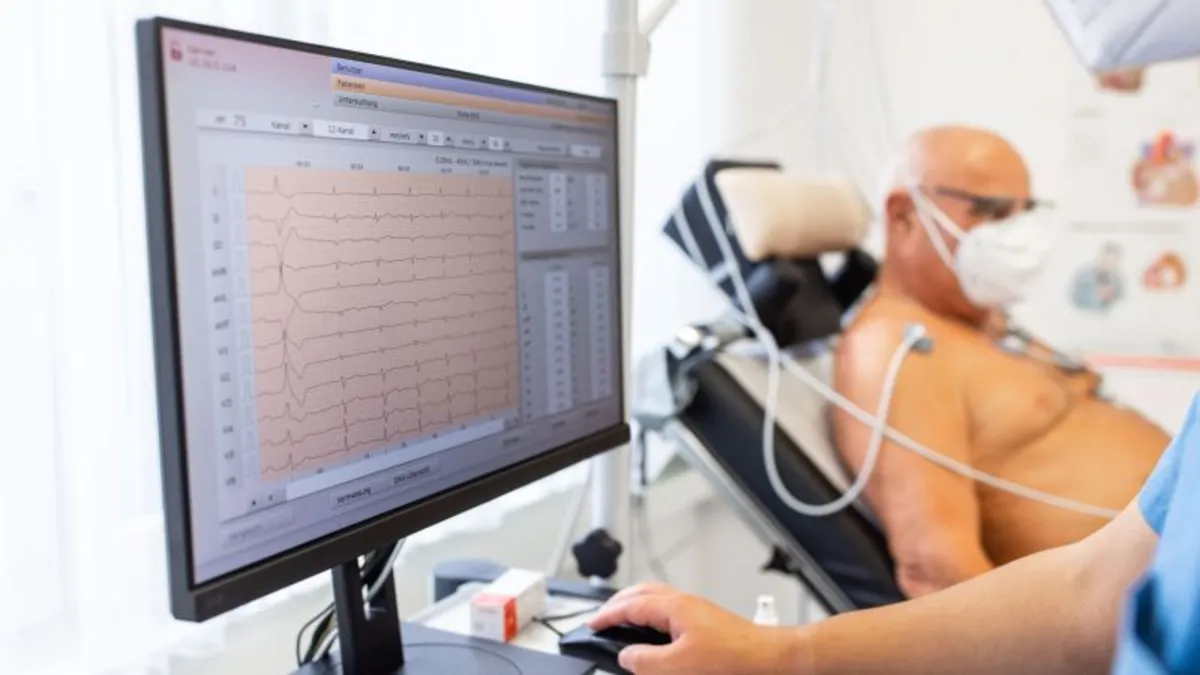
Recent studies have unveiled a significant connection between Covid-19 infections and various cardiovascular conditions, such as heart disease and stroke. However, emerging research indicates that other viral infections, including influenza, HIV, hepatitis C, and shingles, can also heighten the risk of developing heart problems and cardiovascular disease.
A comprehensive meta-analysis published in the Journal of the American Heart Association examined 155 studies conducted over several decades. The analysis found that viral infections can elevate the risk of heart disease not just immediately following an infection but also in the long term. Notably, individuals who contracted the flu were found to be up to six times more likely to suffer a heart attack within the month following their illness. Furthermore, those who had Covid-19 faced nearly double the risk of developing heart disease or experiencing a stroke compared to those without the infection.
Dr. Kosuke Kawai, the lead author of the study and an adjunct professor at the David Geffen School of Medicine at UCLA, emphasized the role of vaccination in mitigating these risks. He stated, “One way to prevent this is really vaccination. Often, we get vaccinated to reduce the risk of influenza or other illnesses, but I think vaccines can provide additional benefits in terms of potentially protecting against cardiovascular disease.”
The study’s authors concluded that both influenza and Covid-19 infections are linked to an increased risk of acute cardiovascular events, including heart attacks. In contrast, chronic viral infections like HIV, hepatitis C, and shingles contribute to a long-term heightened risk of coronary heart disease and stroke.
The research also identifies additional viral infections—such as cytomegalovirus, herpes simplex, hepatitis A, human papillomavirus (HPV), respiratory syncytial virus (RSV), dengue, and chikungunya—that have been associated with an increased risk of cardiovascular disease. However, the authors noted that further investigation into these associations is necessary.
The findings align with observations made by clinicians, as explained by Dr. Scott Roberts, associate medical director for infection prevention at the Yale School of Medicine. He noted, “Unfortunately, many infections can do this.” Respiratory viruses can elevate cardiovascular risk through two primary mechanisms:
Indirectly: By triggering an overactive immune response that causes inflammation, leading to stress and blood clotting affecting the heart. Directly: Certain viruses, like enterovirus strains linked to hand, foot, and mouth disease, can directly invade heart tissue.Dr. Roberts added that the severity of the viral illness is often proportional to the risk of cardiovascular complications, further complicating pre-existing heart conditions like heart failure.
Dr. Kawai pointed out the difficulty in quantifying the likelihood of developing cardiovascular disease post-viral infection. He urged everyone to take protective measures, noting that even younger adults or individuals without traditional risk factors for cardiovascular disease may find themselves at increased risk following a viral infection.
The researchers highlighted the significance of integrated preventive measures, particularly for adults with traditional risk factors for cardiovascular disease. They concluded that vaccinations and timely antiviral treatments could be pivotal in reducing the burden of cardiovascular disease, which remains the leading cause of death globally.
Dr. Roberts reiterated that vaccines for many of these viruses exist and generally reduce the risk of cardiovascular events after infection. Vaccinated individuals are less likely to experience severe illness and, consequently, less likely to suffer from cardiovascular complications. Vaccines are designed to provoke a protective immune response without triggering harmful inflammation in the heart, making them a vital tool in heart health.
Individuals concerned about their risk of heart problems following a viral infection are encouraged to consult with their healthcare provider for personalized advice and preventive strategies.